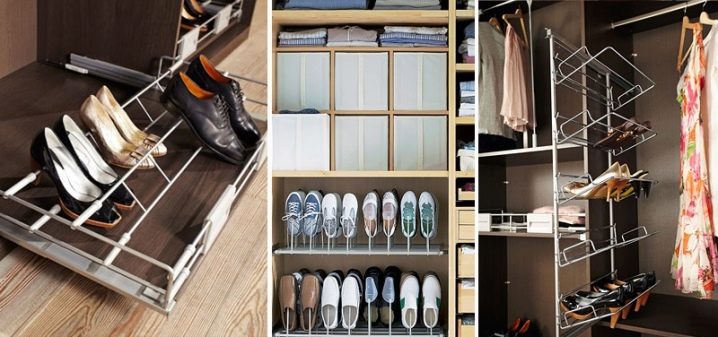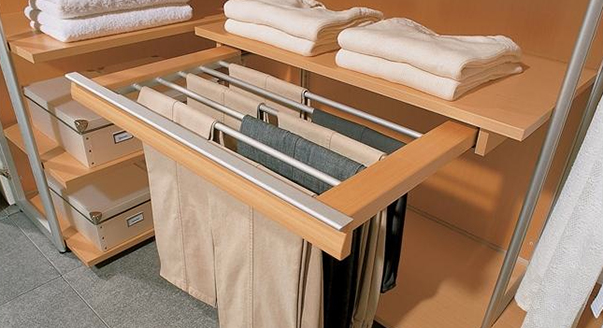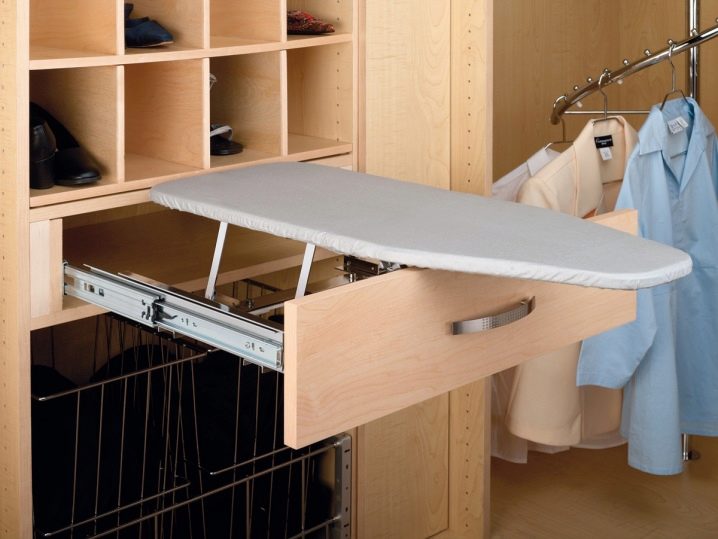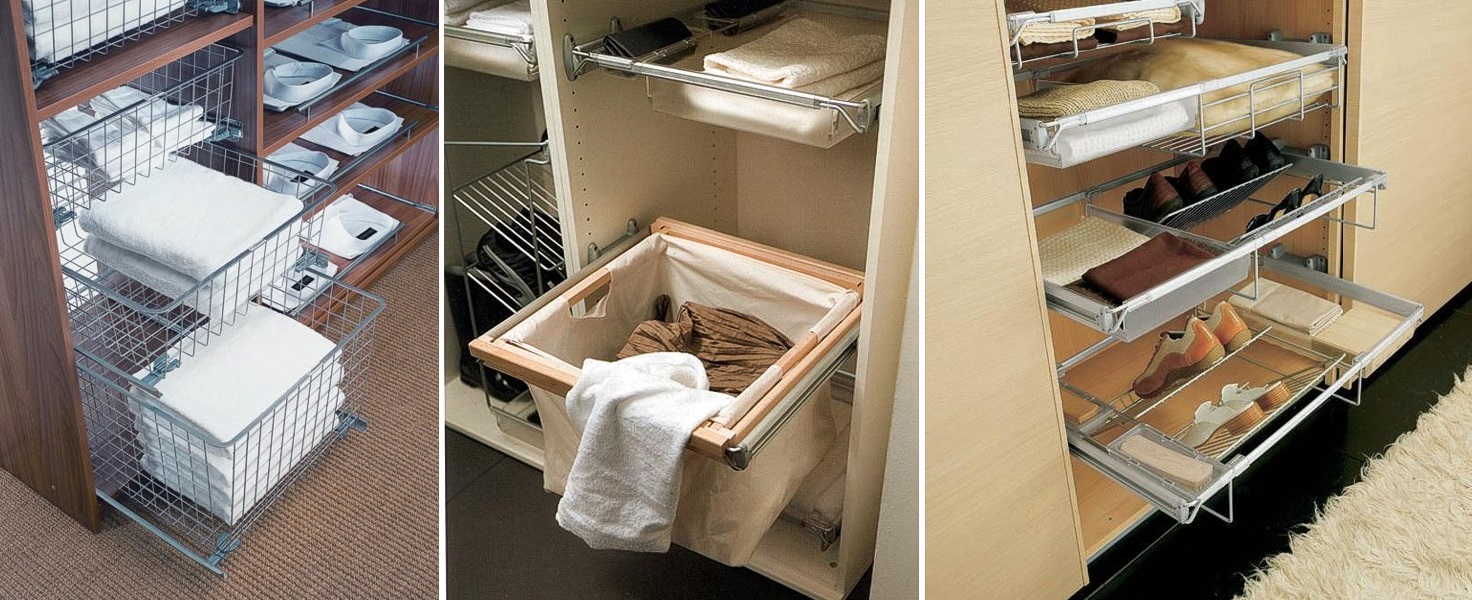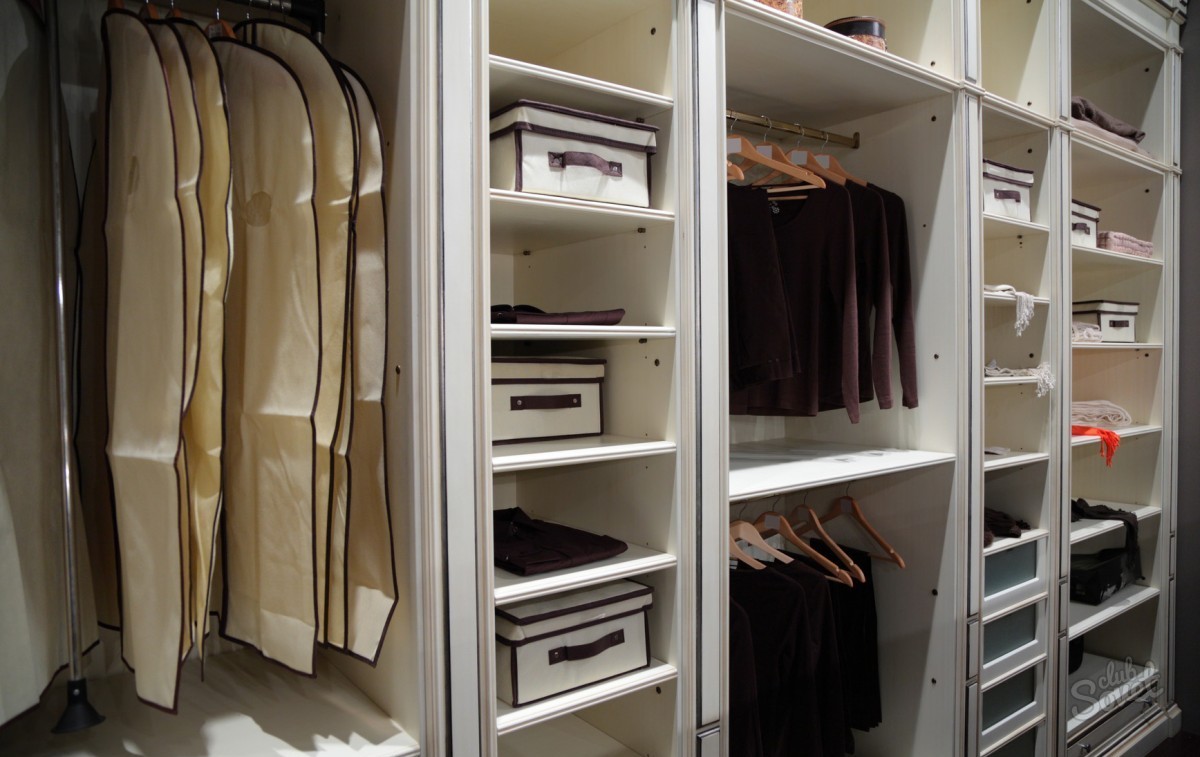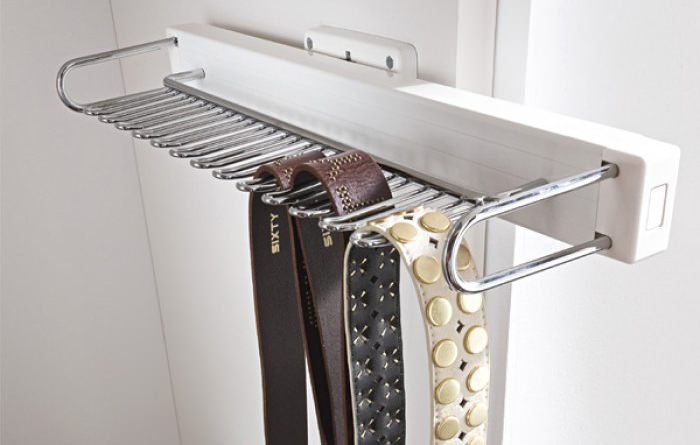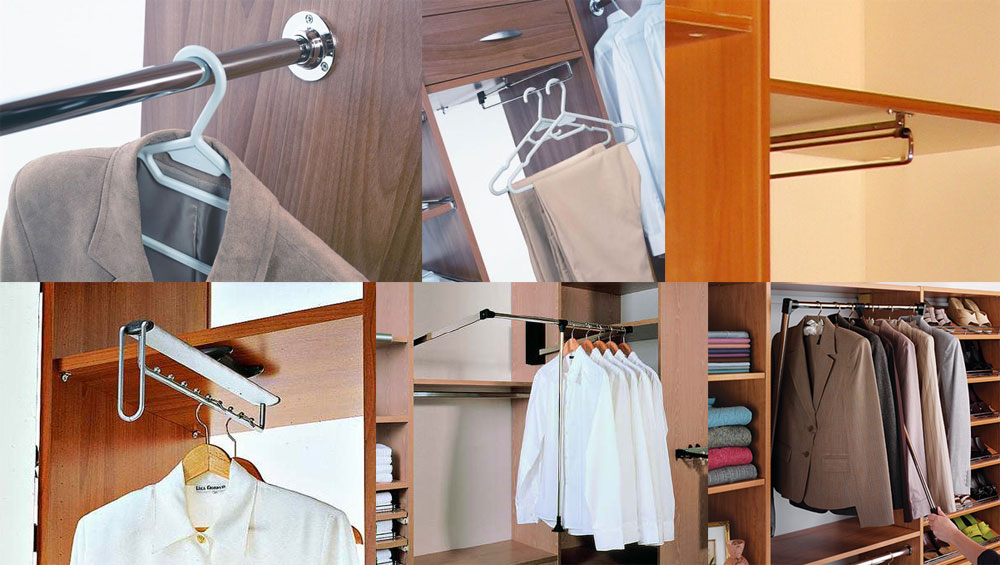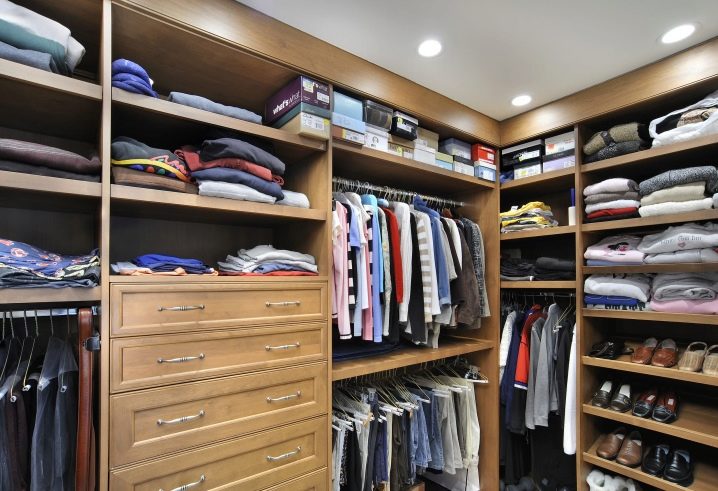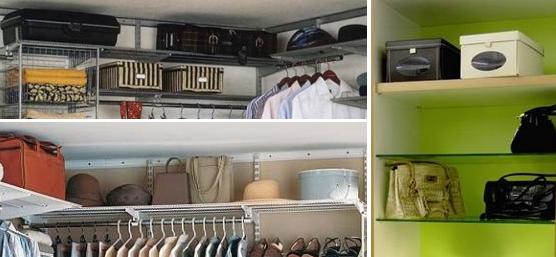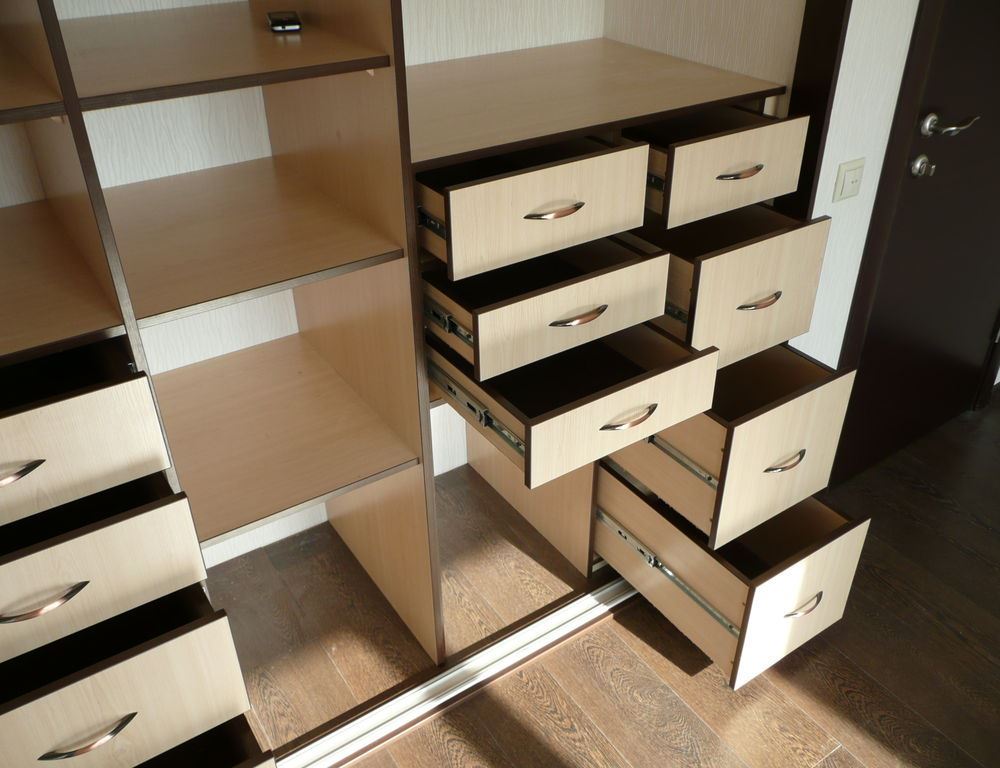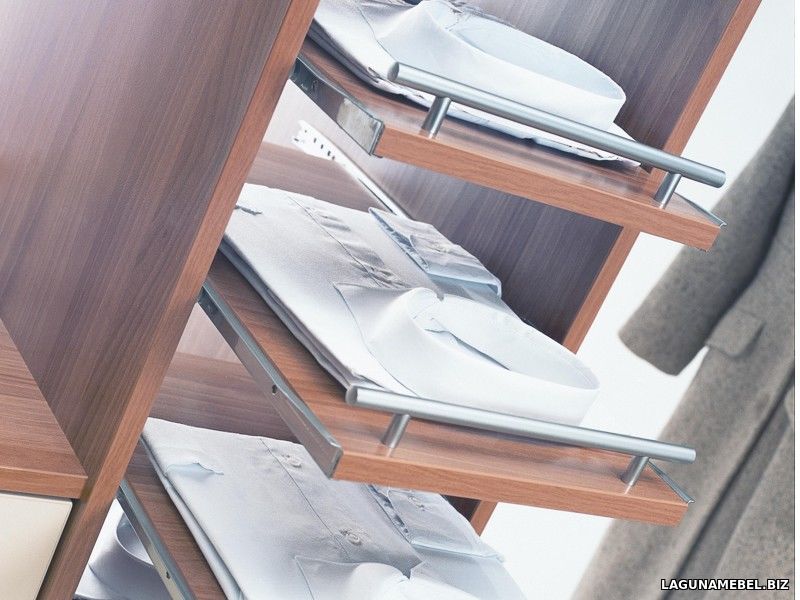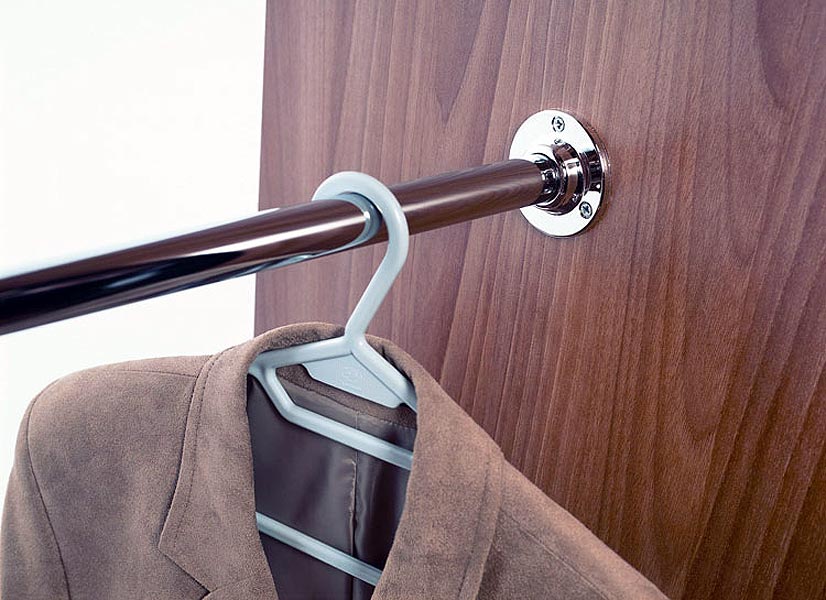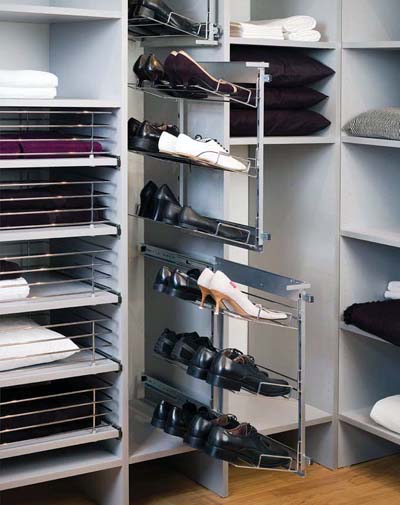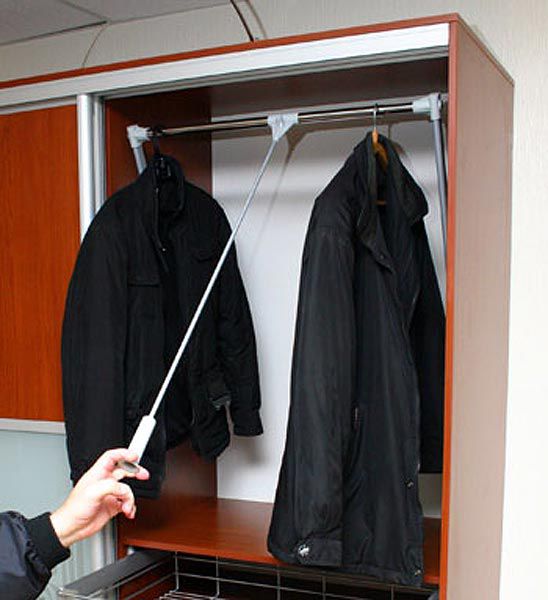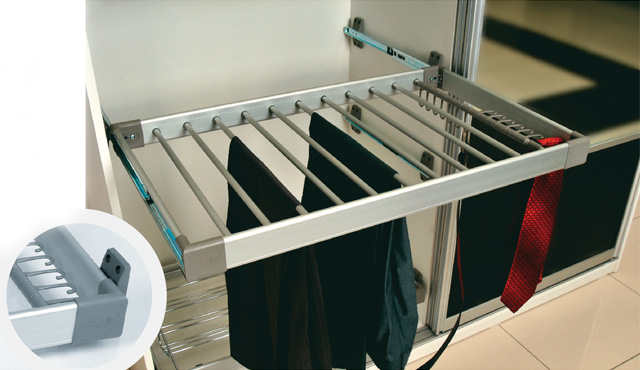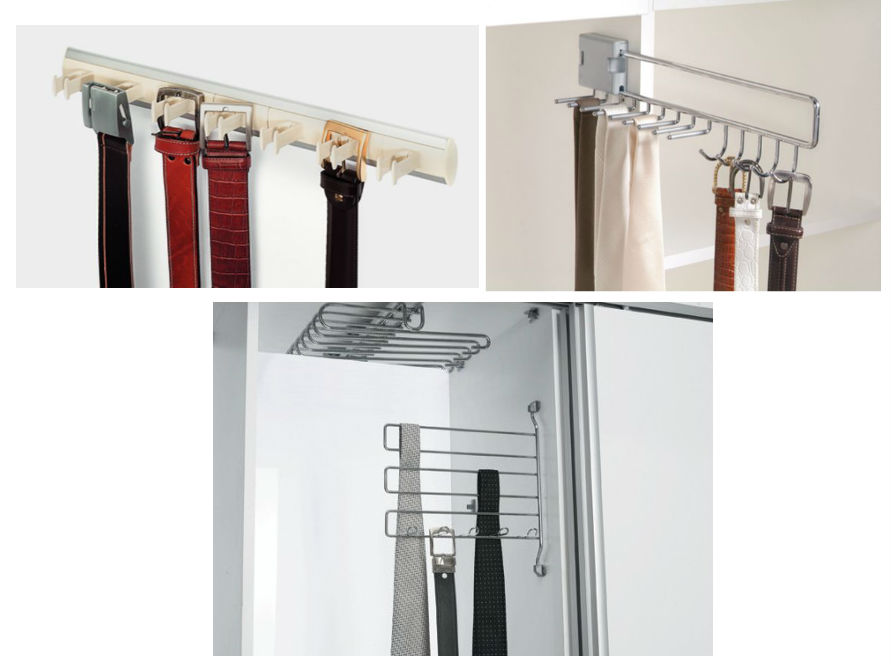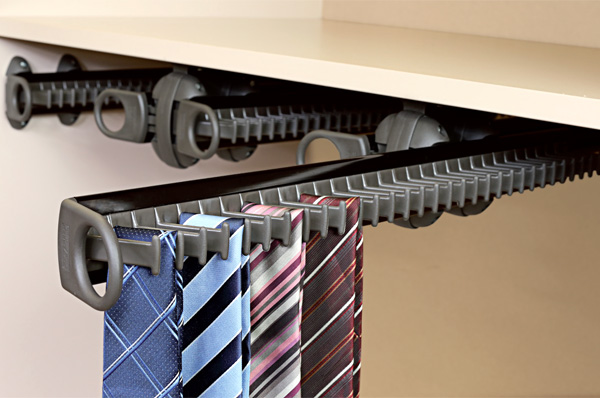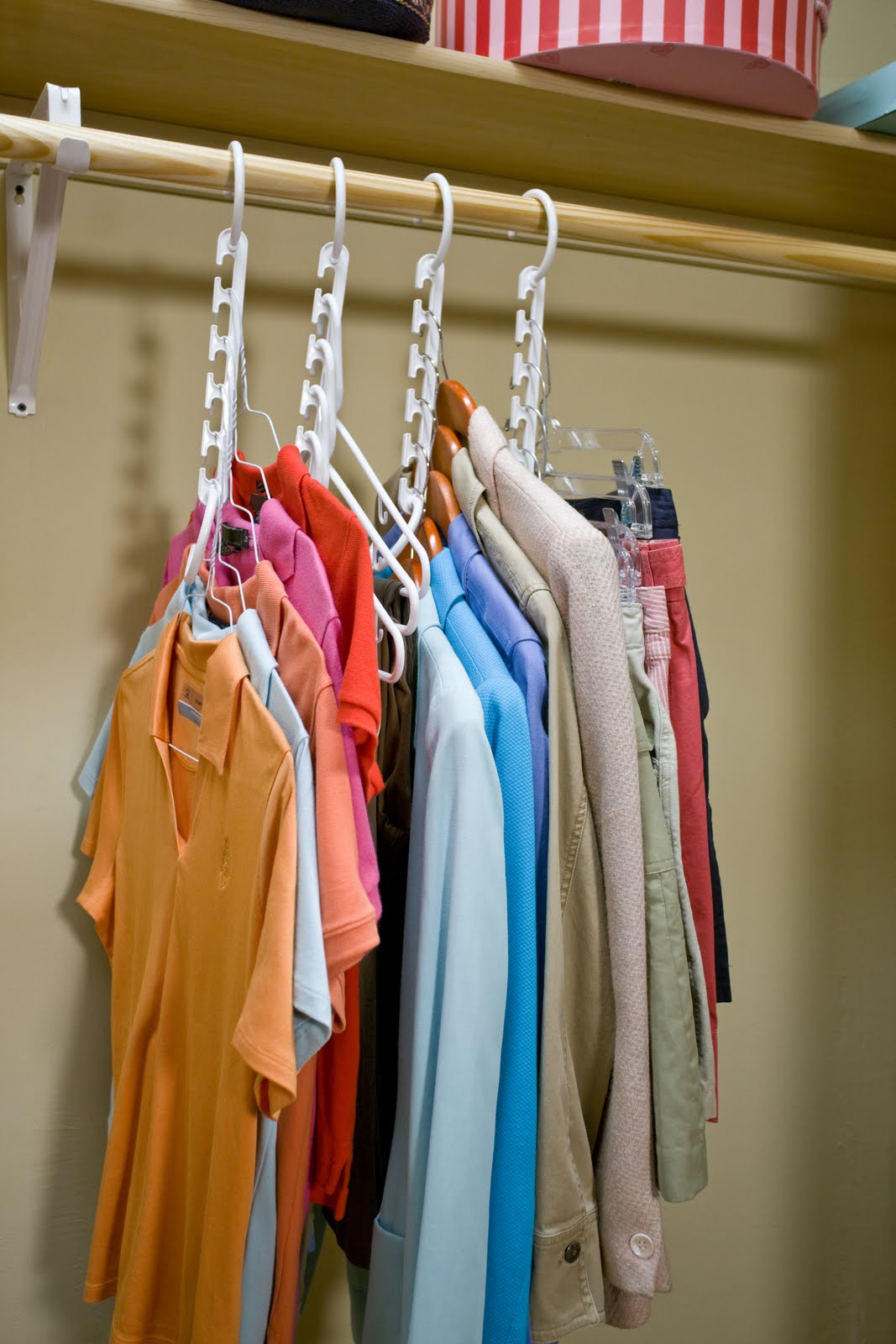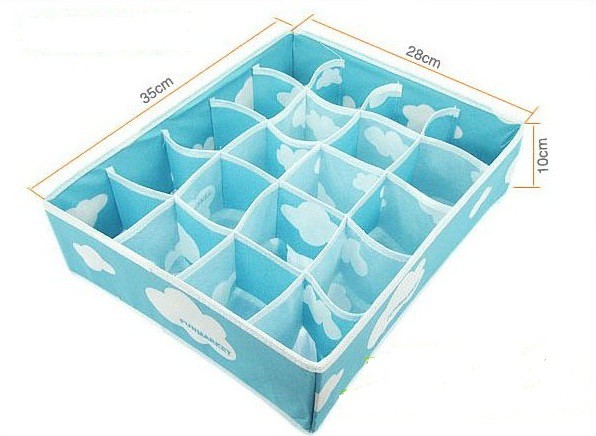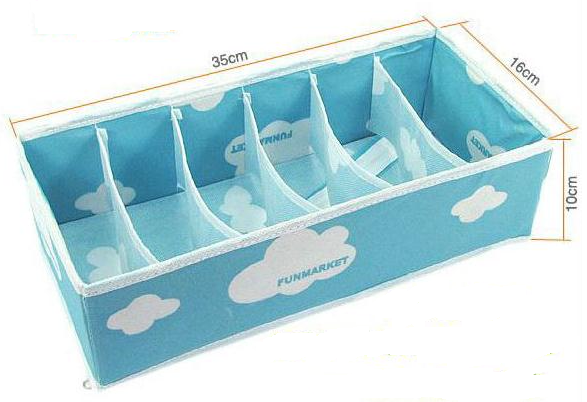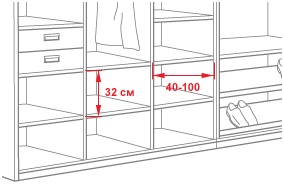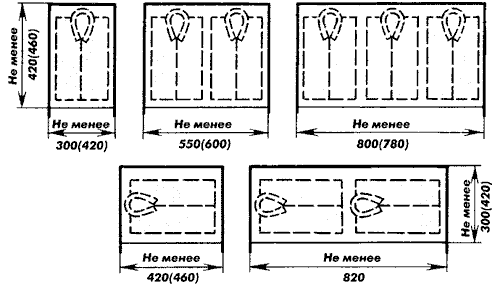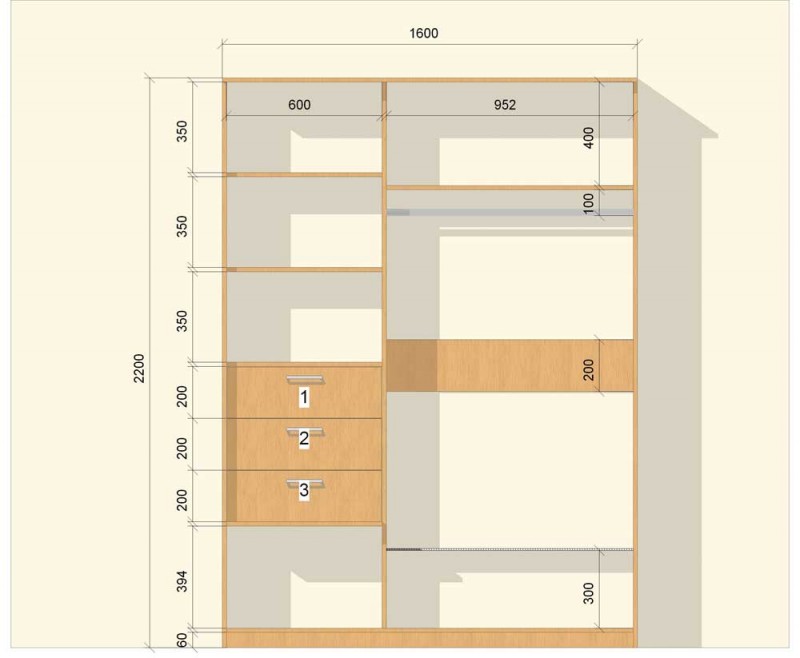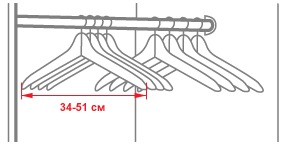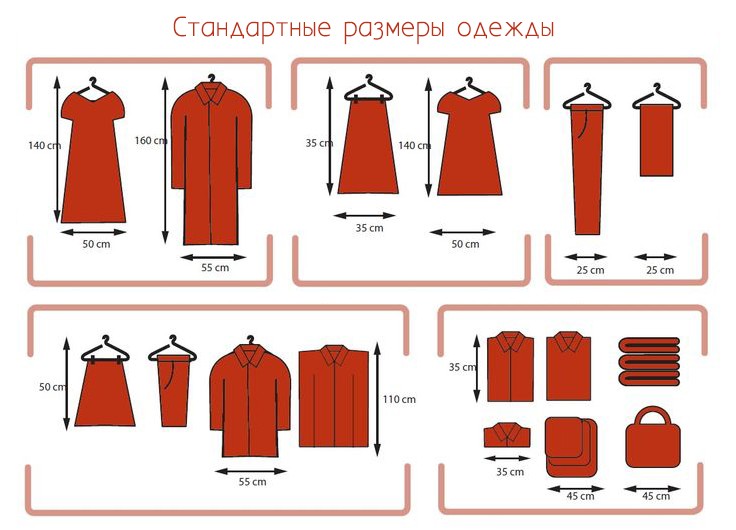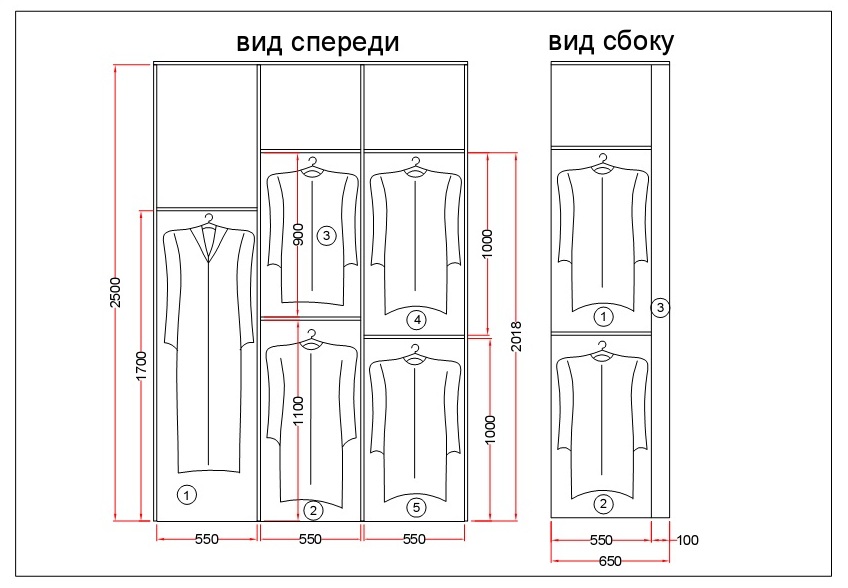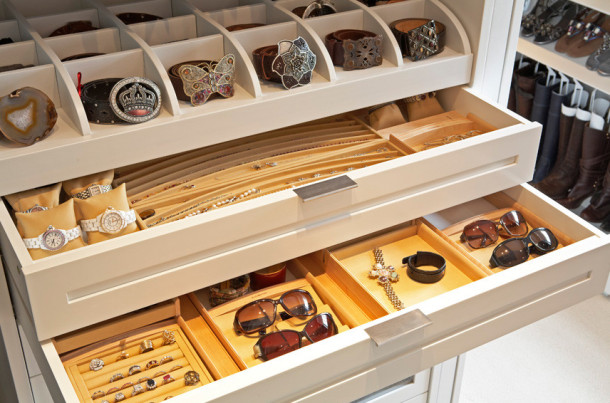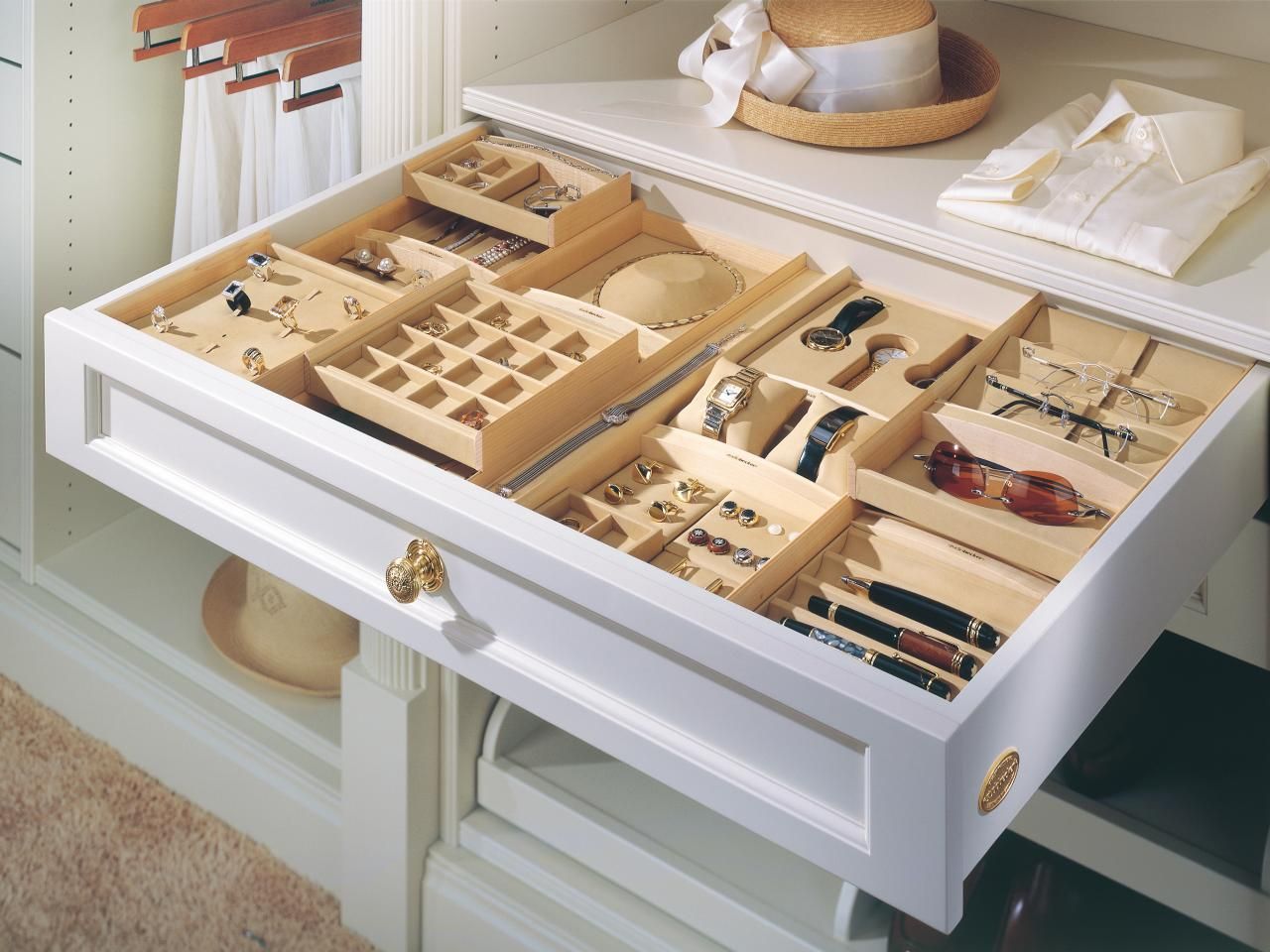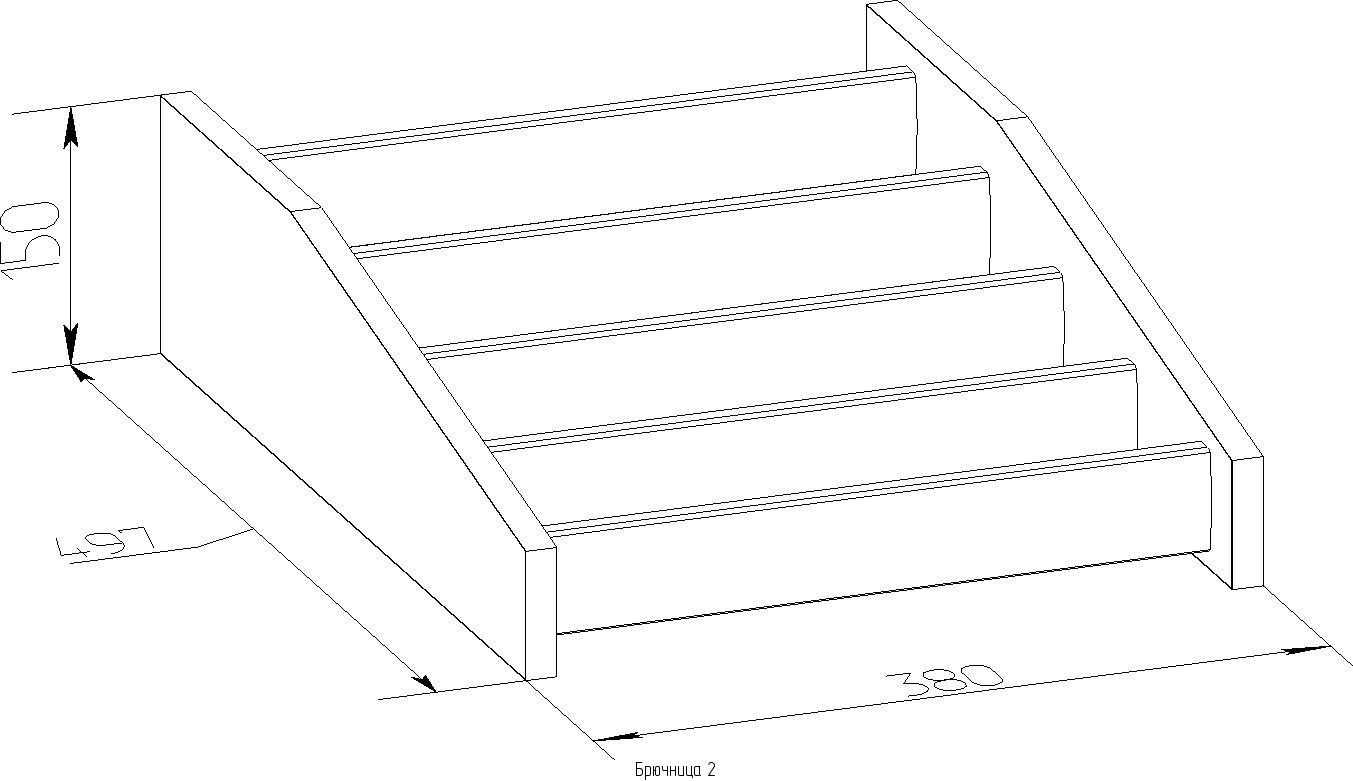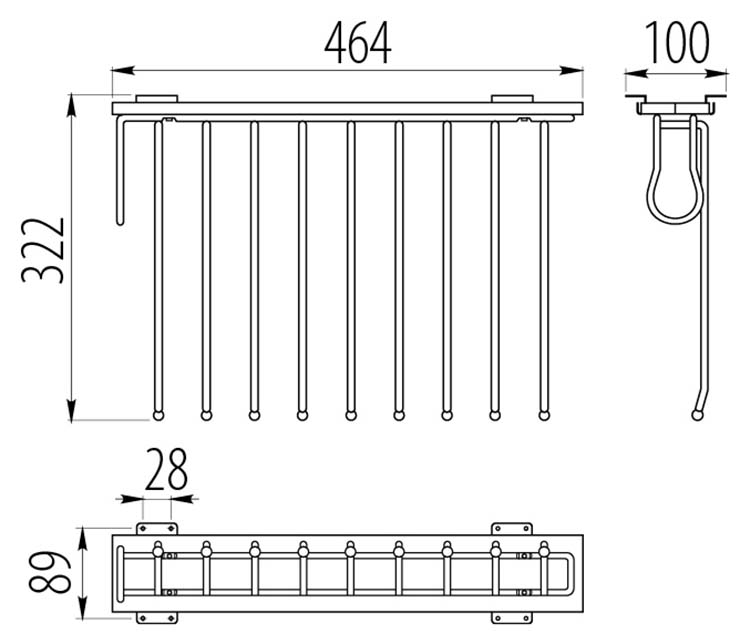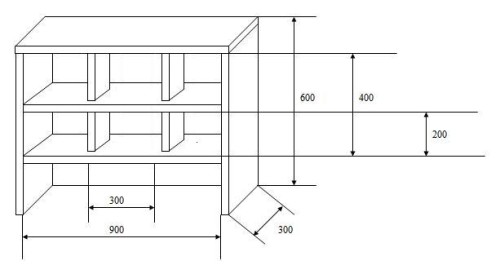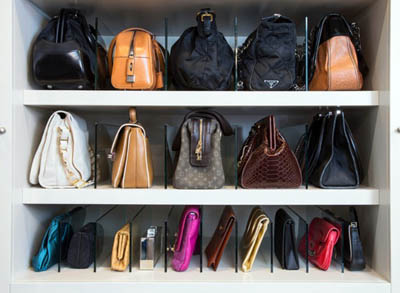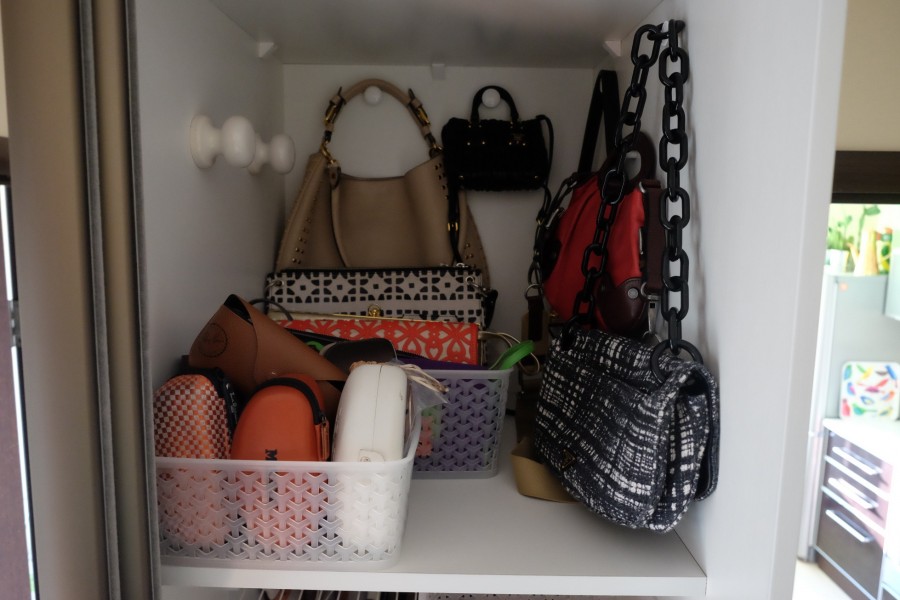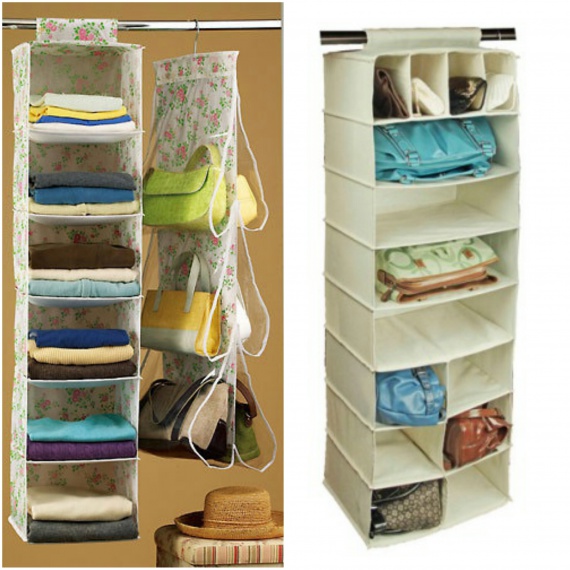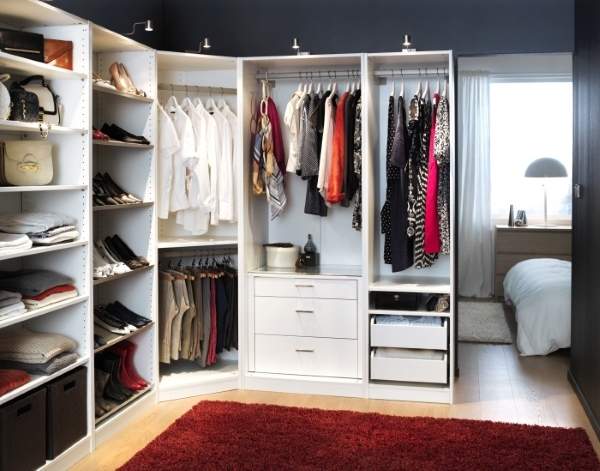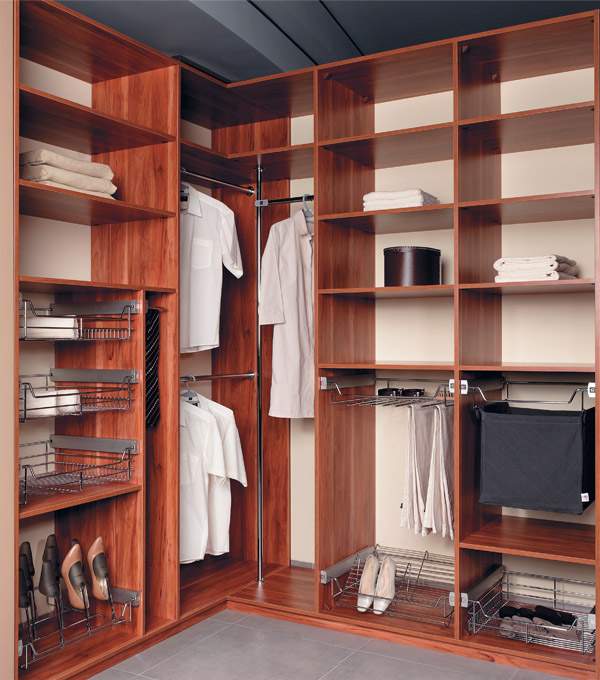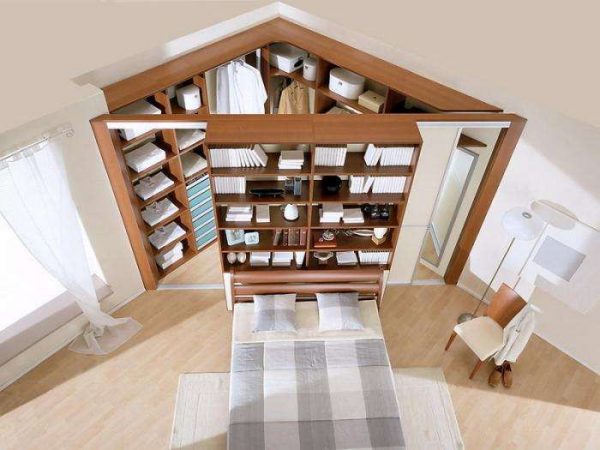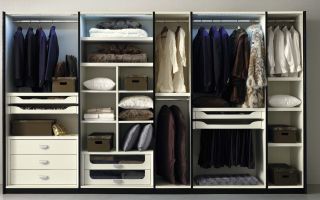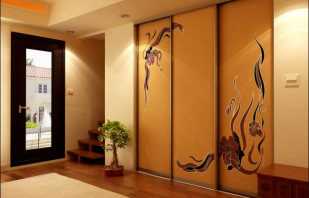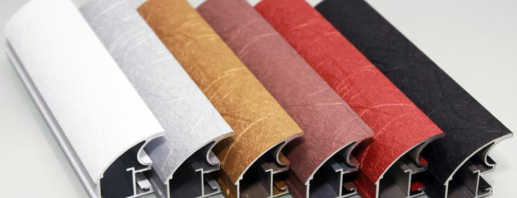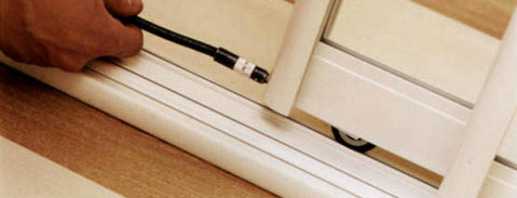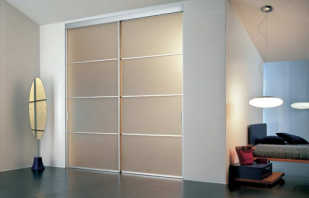Filling options for sliding wardrobes, expert advice
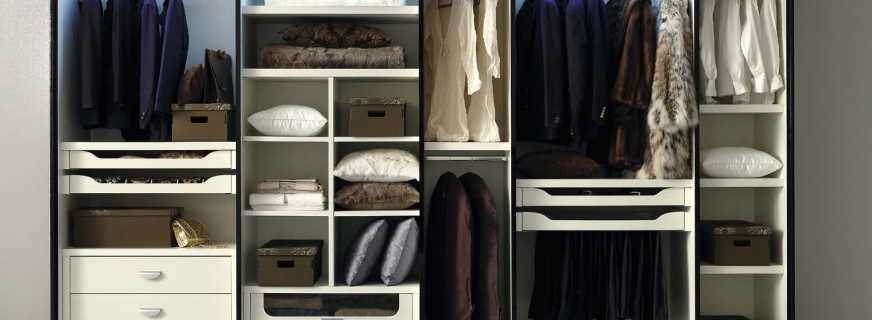
Furniture is an invariable attribute of a comfortable room environment. Among the whole variety of furniture products, built-in and stationary cabinets are in great demand. To save free space, use the area with maximum benefit, wardrobes are installed, equipped with sliding systems. Properly implemented filling the wardrobe with internal elements is the key to the orderly storage of clothes, home textiles, various items, accessories.
Content
Interior layout by zones
The main advantage of sliding wardrobes is their large capacity with compact dimensions and spectacular design. This allows you to store a huge number of things in a narrow interior space. It is convenient to choose compartment furniture under the order, coordinating the details of the internal content of the sliding wardrobe with the manufacturer. What will be the insides of the model depends on personal preferences. Furniture is divided into several functional areas in order to effectively use the interior space.
Lower
Sliding wardrobes are installed in bedrooms, hallways, living rooms, children's rooms. A compartment with dimensions determines the choice of filling furniture with internal elements. The lower zone is located in comfortable accessibility, so it is filled with items necessary constantly:
- hallway - storage of shoes, brushes, creams. In the lower compartment you can place a pedestal for sitting;
- bedroom - the lower design is used to install capacious shelves for overall sleeping accessories;
- wardrobe - a separate room for the orderly storage of clothing, the lower zone is used for shoes;
- children's - the use of the internal device of the closet below to store toys, as an option - shoes between the seasons;
- living room - the lower zone is closed by dull facades. You can store an ironing board, iron, vacuum cleaner.
The lower zone should be up to 400 mm high. Depth depends on the model of the cabinet - the products will put more things deeper, and options take even less space. There are corner cabinets, as well as furniture with radiused facades. The capacity of such products is lower than that of the classic straight-line models.
Average
The main part of the interior space of the closet is the middle zone. It is the most extensive - the height is from 1000 to 1500 mm, which allows you to store things on a coat hanger, telescopic hangers and other attributes of the interior filling of furniture. Mid Zone Functions:
- maximum ergonomics of elements;
- the use of longitudinal, transverse rods;
- the presence of capacious drawers;
- installation of spacious shelves, bag hooks;
- installation of modular systems of baskets, hangers.
In the middle zone have things necessary every day. Rods, shelves, boxes are at a comfortable height for convenient access to wardrobe items, underwear, accessories, outerwear. Filling the wardrobe inside options in the hallway, bedroom, nursery will vary greatly in compartment dimensions, depth and functional elements.
Schemes of the middle zone of the compartment for the hallway are complemented by a mirror, hooks for outerwear, umbrellas, bags. In the children's room, the installation of the rods should be performed at a comfortable height for the child. In the closet for the bedroom, dressing room, they mount accessories for everyday clothes - suits, trousers, shirts, blouses, skirts, in the living room you can install a compartment with a TV in the middle zone.
Top
Models, design and construction of sliding wardrobes are noticeably different. The design of the facades depends on the style of the interior, the size of the furniture determines the availability of free space, and the cabinet design is tied to the type of product and the type of installation - built-in or stationary instance. Therefore, the dimensions of the furniture vary significantly. The upper zone should occupy up to 600 mm in height, the depth depends on the model. If the cabinet dimensions are 2500 mm in height, then 400 mm is the bottom, 1500 mm is the middle, 600 mm is the upper zone. What to arrange at the top:
- in the closet for the hallway on the upper tier store hats, accessories;
- bedroom furniture is equipped with spacious compartments for bedding;
- for the living room compartment filling is relevant to use for overall things, textiles, household appliances;
- in the dressing room on the mezzanine they store things that are not needed for everyday use, boxes with hats;
- You can plan a wardrobe for a child, taking into account placement on the upper shelves of things that the child does not need regularly.
Attention: the design and capacity of the upper zone depends on the size of the compartment, but access to the compartments is somewhat limited due to the height of the structure. Therefore, at the top they store those objects, things, accessories that are rarely used.
Filling elements
Filling, accessories, components for cabinets are selected taking into account the needs of residents, but there are certain standards that should be adhered to. In the cabinets are formed "dead" zones, reducing usable space. For the corner model, this is a place in the corner, for other products - door frames that prevent the drawers from sliding freely. The number of model sections depends on the number of compartment doors. It is customary to classify internal elements as mandatory, built-in, additional.
Required
Regardless of whether the cabinet has 2 doors, three, four or more, there are elements of internal content that are present in all models of the "right" furniture. Mandatory details include:
- roomy shelves - a necessary element for a two-door, three-door cabinet or models with a large number of panels. Shelves connect the details of cabinet furniture;
- clothes rods - for a perfect compartment for one section with shelves you need a section with a bar. Sometimes there is a combination of two compartments equipped with shelves, with one section equipped with a bar;
- drawers - without them, the ergonomics of the product is significantly reduced. The number of planned boxes depends on the number of sections.
The ideal configuration of a cabinet with two doors into two compartments includes a bar and draw-out baskets in the first compartment, shelves and drawers in the second section. Alternative ideas: the first compartment with two rods separated by a horizontal partition, and in the second section - the installation of shelves and drawers. For the three-door version, the scheme consists of a bar, shelves in the first section, drawers and shelves in the second part, two overall compartments in the third section of the cabinet.
Embedded
The layout of the cabinet is not limited to the installation of mandatory elements.In addition to traditional shelves, drawers, hung, to improve the ergonomics of the furniture design helps selected filling built-in type. If the cupboard is tall, it will be inconvenient to get things from the upper mezzanine. Therefore, pantographs are built into the furniture. Furniture elements can be installed under the ceiling and comfortably retrieve things and hang them back without using ladders or chairs.
Furniture elevators or pantographs are metal structures that raise clothes hangers to great heights. They have a limited load of up to 15-18 kilograms. Use products must be strictly in accordance with the carrying capacity. The device is a simple functional part of filling a compartment of high height.
The built-in elements include inclined modules for shoes. They are mounted on the lower tier of the compartment to the sidewalls of the sections. Types of filling the wardrobe closet The photo shows how convenient it is to position the fittings at an angle. This allows you to accommodate a larger number of pairs of shoes. In the interior of the furniture, retractable mesh baskets moving along the guides with a roller or ball mechanism can be integrated. Things that are located in such baskets are well ventilated.
Additional
How to plan the closet most comfortable? Include additional elements in the design. If the cabinet is large, roomy, has not two, three, but 4 doors, three or four meters wide, special storage systems can be placed in it:
- hangers with hooks for wardrobe items that are not wrinkled, as well as for home textiles, bathrobes, towels. In a compartment, do it yourself with accessories at a height that is comfortable for yourself;
- fixed or retractable scissors. Designed for gentle storage of trousers. Equally apply to the built-in and additional filling elements of cabinets;
- Ties - devices for compact storage of a collection of ties. It looks like a strap with a mass of hooks or a box with cells;
- skirts and tiered skirt hangers. Fillers are attached to the side wall of the closet. There are clothespins on the hardware so that things do not wrinkle;
- holders for vacuum cleaners, irons, ironing boards. Use in multi-function coupe in the presence of free space. Additional items include shoe holders.
Sliding wardrobe is used not only for storage of wardrobe items. Sliding structures contain a lot of objects, if this is not a meter option, but a larger model. They are often combined with other furniture products. In the living rooms, a compartment with a TV is installed, in the children's room a closet with a built-in bed, in the bedroom a compartment with a chest of drawers. Filling depends on the dimensions of the model, the number of doors, the shape and installation of furniture.
Storage Dimensions
The options for the closet inside are the most diverse. Shelves, drawers, hooks, hangers help to complete furniture rationally and effectively. The more space inside, the easier it is to complete the arrangement of the model. To get and fold things was comfortable, you need to consider the size of storage systems and furniture design.
For underwear
It is convenient to store intimate wardrobe items in compact drawers. Structural dimensioning - from 150 to 300 mm deep, 150-200 mm high. The width depends on the section in which the boxes for underwear are located. Men's items of intimate wardrobe are folded separately from socks. Lingerie can be placed in a box in several sections - for bras and swimming trunks.
The dimensions of the drawers in depth can exceed the planning standard of 300 mm, but then it will be less comfortable to get things out of a narrow space. Retractable type constructions are classified into roller and ball according to the mechanism of extension, elements are equipped with systems with closers and without closers. Boxes for underwear are located in the middle area of the closet.
For non-wrinkling things
In the wardrobe there are things made of materials that do not wrinkle. Such products are conveniently laid out on shelves in two rows. If you need to fill a narrow cabinet, things are stacked in one row. The optimal calculation of shelves for non-creasing clothes:
- children's shelves - 350-500 mm in width;
- shelves for women's things - 450-600 mm;
- shelves for men's clothing - 500-700 mm.
The height of the shelves should not exceed 450 mm. The sizes were not chosen by chance, but taking into account the difference between the clothes of all family members. It is logical to assume that storing men's non-creasing clothes requires more space than for children's things. In addition, it is easier for an adult to get his clothes off the shelves in the closet than for a child.
For things on the shoulders
The main part of the wardrobe is clothing that is easily wrinkled. It is convenient to store such products on the selected hangers, hangers, rods. Shirts, blouses, dresses, jackets can be compactly hung in compartments equipped with rods. Features of a complete set:
- department for short things on the shoulders. Calculation: the standard rod length is 900 mm, the compartment depth is 600 mm, and the height is 1000-1100 mm. Short things include jackets, blouses, shirts, skirts;
- compartments for long outerwear, skirts, dresses. Such products will not crumple if rods for hangers are calculated in compartments with a depth of 600 mm and a height of 1500-1750 mm;
- section in the children's closet. The child’s things that are stored on their shoulders include school uniforms, blouses, sundresses, shirts, suits. Examples of calculation: compartment depth 450-500 mm, height 800-1000 mm.
Telescopic hangers, accessories with a swivel mechanism, longitudinal rods, transverse rails, hung with hooks - all these filling elements are located in the middle zone of the furniture structure. The sliding wardrobe section can be divided by a horizontal shelf for two functional compartments equipped with rods for clothes on the shoulders.
For accessories
The invariable attributes of the image of a modern person are belts, ties, watches, glasses, bracelets, jewelry. To keep these items at hand, sliding wardrobes are equipped with small drawers, divided into compartments. The calculation of the internal dimensions of the sections is 100x100 mm with the height of the box itself up to 120 mm. It is convenient to store accessories of all family members in them.
Belts and ties are folded into a ring and placed in the appropriate cell - the necessary items can be easily removed and folded if the box is located at a height of approximately 800 mm from the compartment floor. Depth of drawer depends on cabinet model. If it exceeds 600 mm, it is better to put accessories in the last cells, which do not need to be used every day.
Scissors
One of the additional elements of filling cabinets are devices for hanging trousers. At home, trousers are often hung on the back of a chair, but this option creates a mess in the room. Scrambled eggs are specially designed for storing creasing products. They are hung full length or doubled. The location of the women in the closet:
- installation height - 1200-1300 mm from the floor;
- quantity - one or two devices;
- standard product length - 450-600 mm;
- the width of the scissors does not exceed 350 mm.
Scissors can be attached to the back wall, departing from the bottom of the cabinet at least 550-600 mm. One-sided models are installed to the side or far wall of the compartment, and two-sided models are mounted to a shelf located above the scrubs. Before calculation, choose the optimal installation height for your own needs.
For shoes
It is convenient to store the shoes in the lower zone of the sliding wardrobe, choosing the basic elements for shoes - mesh baskets, cascade modules, mount holders. The height of the space under the shoes is within 400 mm. According to individual drawings, a ready-made shoe rack can be built into the closet, and if the furniture structure is spacious, install a shoe rack. Most often, shoes are neatly stored on mesh shelves. Calculation of product sizes:
- depth - 230-520 mm;
- height - varies;
- width - by section.
Shoe racks are mounted at an angle on the swivel arms to fit more pairs. The height from shelf to shelf depends on the shoes that are supposed to be stored. For high boots, it is better to use an alternative option - to put them away if necessary in boxes on the mezzanine tiers. Low shoes can be positioned in a grid device with a distance between the shelves of 150 mm.
For bags
Sliding wardrobes are additionally used for storage of such necessary products as bags, suitcases, clutches, cases. Traveling and sports bags are located on the mezzanine level - its height is about 600 mm, so most bags can easily fit on top. It is possible to place dimensional bags in the lower part of the compartment, then the compartments must have a height of 400 mm.
Small bags and clutches are hung on the side hooks in the filling of the doors of the closets, placed in a separate shelf in a row. In the cabinet, you can provide a place for beautiful hooks for the bags or place the products on open shelves located on the sides of the cabinet.
A large closet places any objects and things, including digital technology, video systems, books. Hundreds of photos clearly show how to make a coupe with your own hands or choose the content for your own needs.
Features of corner designs
Models of furniture furniture products can have a variety of designs and shapes - there are a lot of ideas. In the limited space of small rooms, a frequent option of a sliding wardrobe is an angular model. Furniture saves space, but the cabinet's capacity is reduced - it is difficult to use the interior space in the corner of the cabinet. This place is called the "dead" zone. Options for filling the corner design of the coupe:
- the central part is filled with clothes hangers, and the side sections with shelves and drawers. Additionally, we select open shelves of radius type (rounded edges) on the sides of the wardrobe;
- it is fashionable to divide the angular model into two main sections of different widths. The left side of the compartment is equipped with spacious shelves - it turns out a deep and roomy compartment. On the right side there is a compartment with a clothes bar and narrow shelves;
- alternative option - in the central part of the corner model, two rods are mounted one above the other to store things on the shoulders. The left and right sections are arranged respectively with drawers and spacious shelves.
The filling of corner models is complicated by the inability to fully use the zone in the corner of the closet. Radius corner models with convex / concave facades are even more difficult to fill. The edge of the shelves should repeat the shape of the radial facade panels. This moment also affects the spaciousness of the closet.
Using closets for orderly and organized storage of things leads to order in the room. Wardrobe items, accessories, home textiles, sleeping accessories are neatly placed on shelves. It is convenient to take things out and put them in place, since in most cases filling furniture is done taking into account the needs of all family members.
Video


